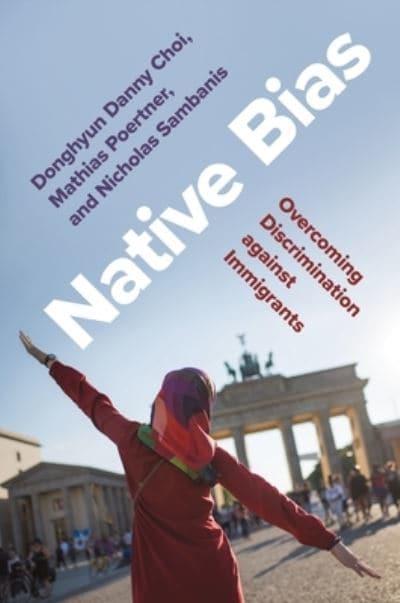Native bias
overcoming discrimination against immigrants
- ISBN: 9780691222301
- Editorial: Princeton University Press
- Fecha de la edición: 2022
- Lugar de la edición: Princeton (NJ). Estados Unidos de Norteamérica
- Encuadernación: Rústica
- Medidas: 24 cm
- Nº Pág.: 312
- Idiomas: Inglés

What drives anti-immigrant bias-and how it can be mitigated
In the aftermath of the refugee crisis caused by conflicts in the Middle East and an increase in migration to Europe, European nations have witnessed a surge in discrimination targeted at immigrant minorities. To quell these conflicts, some governments have resorted to the adoption of coercive assimilation policies aimed at erasing differences between natives and immigrants. Are these policies the best method for reducing hostilities? Native Bias challenges the premise of such regulations by making the case for a civic integration model, based on shared social ideas defining the concept and practice of citizenship.
Drawing from original surveys, survey experiments, and novel field experiments, Donghyun Danny Choi, Mathias Poertner, and Nicholas Sambanis show that although prejudice against immigrants is often driven by differences in traits such as appearance and religious practice, the suppression of such differences does not constitute the only path to integration. Instead, the authors demonstrate that similarities in ideas and value systems can serve as the foundation for a common identity, based on a shared concept of citizenship, overcoming the perceived social distance between natives and immigrants.
Addressing one of the most pressing challenges of our time, Native Bias offers an original framework for understanding anti-immigrant discrimination and the processes through which it can be overcome.
1 Introduction 1
The Argument in a Nutshell 8
The Evidence 15
Why Study Germany? 19
Broader Impacts 25
Plan of the Book 28
2 Reducing Social Distance, Reducing Bias 31
Confronting Parochialism 31
Dilemmas of Inclusion 36
Concepts 39
Overcoming the Native-Immigrant Divide 42
Norms and Intergroup Conflict 47
Hypotheses & Mechanisms 51
3 Measuring Bias and Discrimination 56
Attitudes 58
Measuring Anti-immigrant Attitudes in Germany 61
Capturing Anti-immigrant Behavior in the Field 73
Discussion 88
4 Linguistic Assimilation 91
Native Preference for Linguistic Assimilation 91
The Importance of Language in German Identity 95
Experimental Intervention 102
Main Findings 105
Discussion 109
5 Shared Civic Norms 112
Cleanliness 115
Experimental Design 122
Results 126
Discussion 129
6 Gender Equality 133
Women at the Core of Value Conflict with Islam 135
Group-derived Norms 142
Experimental Evidence from the Field 146
Results 154
Attitudinal Differences between Men and Women 160
What Does the Hijab Signify? 162
Discussion 165
7Viewing “Them” as One of “Us” 170
Research Design 172
Main Findings 179
Discussion 194
8 Overcoming Discrimination 196
Contributions to the Literature 197
Contributions to Methods 198
Contributions to Theory 199
Contributions to Policy Design 202
Next Steps 206







